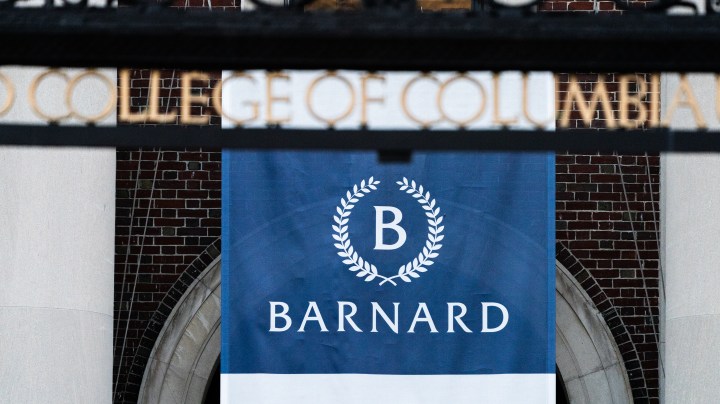
With Roe v. Wade overturned, colleges prep to provide abortion medication
With Roe v. Wade overturned, colleges prep to provide abortion medication

Now that the Supreme Court has overturned Roe v. Wade, some colleges and universities are starting to provide abortion medication.
Last week, Barnard College announced that it’ll start doing so next fall. Massachusetts passed a law in the summer requiring the state’s public colleges provide the medication. Beginning in January, California’s public universities will too, but not its community colleges. One challenge is that distributing the medication requires resources that some schools might not have.
Access at college matters, because people between the ages of 20 to 24 account for about a third of all abortions in the United States, according to the Guttmacher Institute; people in their 20s account for half. If students don’t have access to abortion, there can be real consequences.
“There’s evidence that when women are denied wanted abortion, health care, that they are harmed economically,” said Carrie N. Baker, a professor of women and gender at Smith College, whose research informed the Massachusetts law. “[They] were more likely to experience economic hardship, and their children were more likely to grow up in poverty.”
Avoiding those harms is one of the reasons Massachusetts passed its law, which requires public colleges to either provide abortion medication to students or create a plan for access.
“The reason we went with both is that some of these schools are very tiny institutions, and they don’t have health services that are open very often,” said state representative Lindsay Sabadosa, who sponsored the law.
Most colleges require students to have health insurance, and in Massachusetts, all student health care plans cover abortion. But students from elsewhere whose polices don’t cover abortion would have to pay for the medication. Sabadosa said there are abortion funds that could help with the cost, which may vary.
“The cost of the medication itself is about $54. Providers charge a wide range of fees,” said Baker at Smith College — up to $600, according to the National Women’s Health Network.
Still, by distributing abortion medication, Baker said state schools are changing students’ expectations of what a college or university can provide.
“This is raising the stakes on private colleges, and students are saying, we want this too.”
Baker’s research found that when abortion medication isn’t available on campus, students may have to travel hours to get it. That’s particularly a burden on low-income students.
“It’s just another barrier for them to complete their education,” said Martha Sanchez, health policy and advocacy director for the nonprofit Young Invincibles.
There’s a lot happening in the world. Through it all, Marketplace is here for you.
You rely on Marketplace to break down the world’s events and tell you how it affects you in a fact-based, approachable way. We rely on your financial support to keep making that possible.
Your donation today powers the independent journalism that you rely on. For just $5/month, you can help sustain Marketplace so we can keep reporting on the things that matter to you.
















